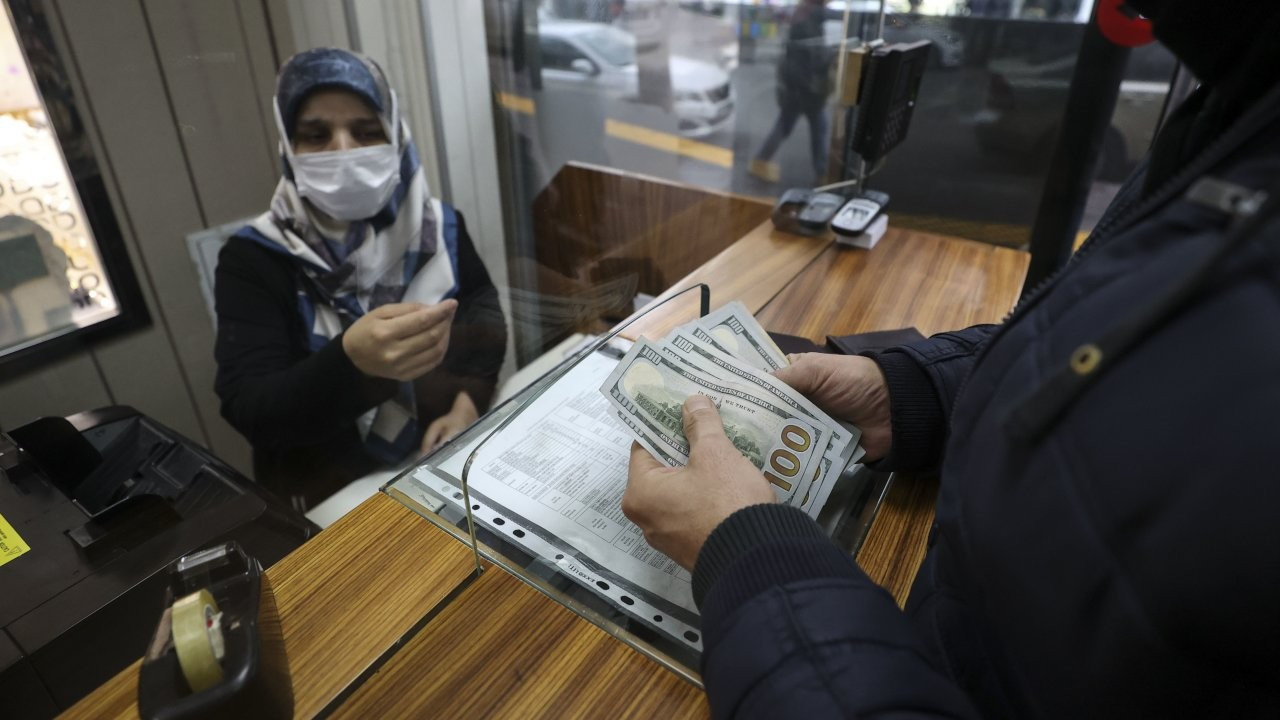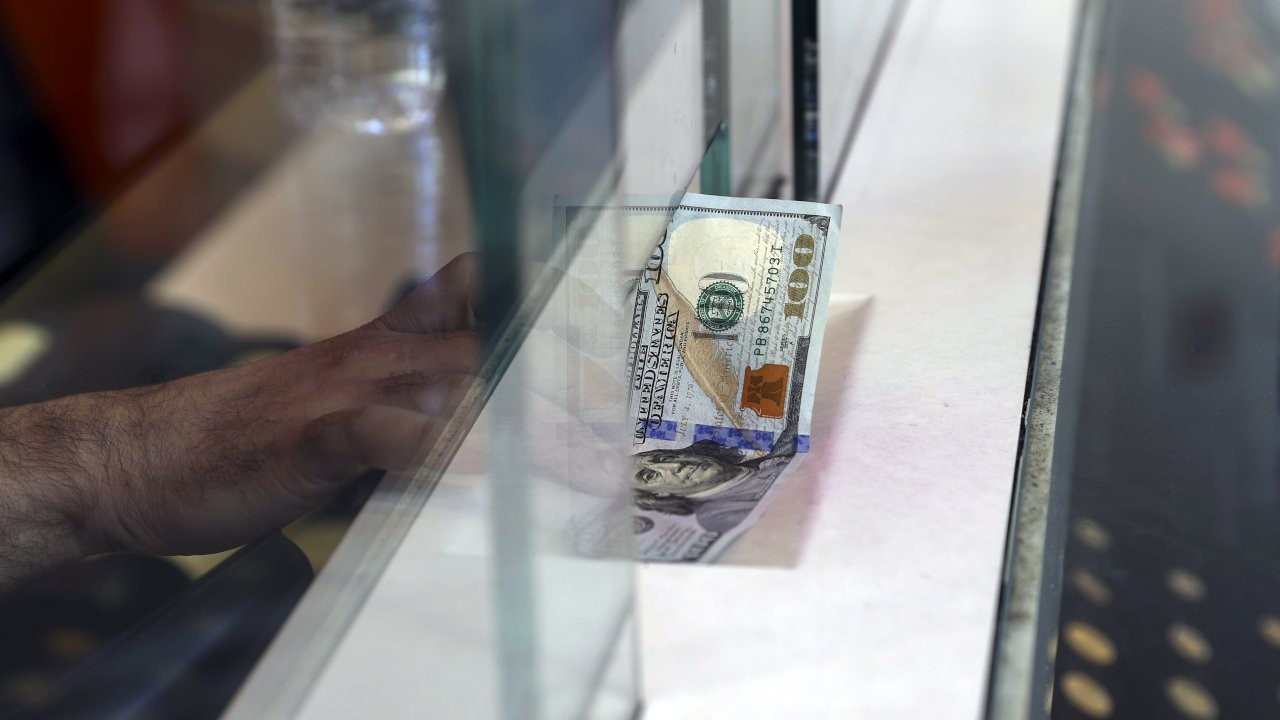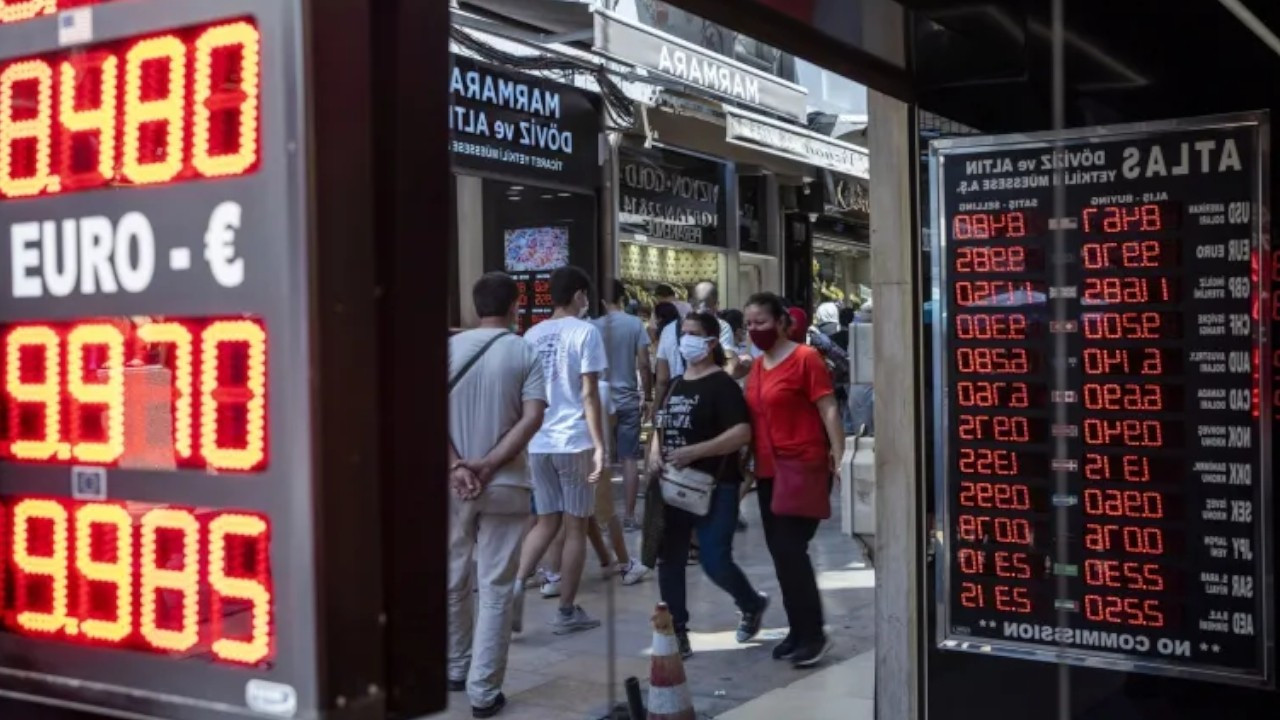President Erdoğan has only brought poverty to Turkey, numbers show
After the Turkish Lira rebounded this week, Justice and Development Party (AKP) supporters rejoiced. However, the numbers show that over the course of his tenure, President Erdoğan and his party have only made people in Turkey poorer.
Duvar English
In the past two days, President Recep Tayyip Erdoğan and his supporters have rejoiced in the rebound of the Turkish Lira against the dollar. However, reporting by daily BirGün shows that that celebration is misplaced. Not only was the currency crisis self-inflicted, but over the past two decades of Justice and Development Party (AKP) rule, people in Turkey have only gotten poorer.
The rebound of the lira has done little to help people in Turkey in the domestic market. The lira has improved against the dollar, but prices continue to rise and inflation is still soaring. Transportation and textiles are both expected to get more expensive soon, and youth unemployment is still at record levels. Millions of households are reliant on welfare and social support, while millions of children sleep cold and hungry.
According to BirGün, President Erdoğan’s administration has created an economy wherein young people dream of going abroad and minimum wages are not enough to purchase basic goods, and the country is expected to applaud it.
President Erdoğan, they write, wants the country to thank him for the “model” he implemented two days ago to allegedly increase their wealth. However, if one really looks at the plan, it does little to solve the issues experienced by the country. In fact, in some ways, those problems are exacerbated - the government is just gaining time by creating an illusion.
Cries of “the chief succeeded again” echoed in unison in Turkey. But what has Erdoğan really accomplished? What did he do? Did he find jobs for young people, reduce poverty, or give the youth hope for the future? He didn’t do anything except allow the currency to appreciate by 60%, the young people say.
Over the past two days, the opposition has been trying to explain that Erdoğan’s move is wrong, that it is pushing a solution that does not really exist. However, even by talking about the plan, they are drawing attention to it. Because they need the support of business organizations, they cannot leave Erdoğan’s sphere of influence.
Erdoğan is trying to regain power by managing perception. But no management of perception can compete with reality. This move will be short-lived. We may see the results tomorrow, or sooner than tomorrow.
It is worth noting that Erdoğan’s anti-dollarization plan only applies to a very small portion - 6.9% - of deposits. In other words, 93.1% of deposits in Turkey fall out of its scope.
The state of Turkey’s economy
The government, which created the very currency crisis it is claiming it reversed, boasts that the dollar rate has been reduced to below 12 liras. However, there are still problems remaining that plague the society of 84 million. Large sections of the population are still getting poorer day by day.
The increase in the foreign exchange rate and its reflection on electricity, natural gas, and gasoline prices, as well as on production input costs and the price hikes of basic goods and services, worsened living conditions for millions of families with low, fixed incomes. the purchasing power of their minimum wage incomes, which was already insufficient, has further declined.
According to Türk-İş's calculations, as of November, the cost of living for a single person exceeded the current net minimum wage (2,825 liras) by 1,078 liras. The hunger limit for a family of four increased to 3,191 liras, and the poverty line to 10,395 liras. In the last year, the hunger and poverty lines have increased by 26.8 percent. Only food expenditures for a family of four increased by 98 liras monthly and 675 liras annually as compared to last year.
The minimum wage, which was $381 at the beginning of the year, fell to $225 when the exchange rate broke its all-time record, hitting 18.4 to the dollar. The minimum wage has now been increased by 50% to 4,253 lira, or roughly $338, $43 less than last year, reports BirGün.
The price of oil also continues to rise. The government implemented the “scale mobile system” (SCT) to ensure that the rising cost of exchange and oil would be not passed on to consumers. However, due to the excessive increase in both the exchange rate and oil prices, the SCT on fuel products dropped to zero in October. Fuel prices skyrocketed due to the drop in the value of the Turkish lira. Gasoline prices increased by 49%, diesel by 58%, and LPG by 80% in the past three months. A significant portion of this increase was in the past month when the lira depreciated rapidly against the dollar. Between November 16 and December 18, 2021, the price of gasoline increased by 43%, diesel by 40%, and LPG by 32%.
Fesih Aktaş, President of the Energy Oil Gas Supply Stations’ Emloyers’ Union (EPGIS), announced that there would be a reduction in fuel prices due to the reduction in exchange rates. However, according to a decision published in the official government newspaper, the SCT was technically terminated. That means that if prices of oil continue to rise, they could again be reflected back onto consumers.
Unemployment also continues to plague Turkey. Millions of people in the country continuously look for work and cannot find employment. An increased minimum wage only increases fears of being unable to find work.
In September, there were 7.8 million broadly-defined unemployed people in Turkey aged 15 and over. Unemployment has increased by 23.4% from pre-pandemic levels.
The government refuses to accept responsibility for this, says BirGün. However, according to their own TurkStat data, 32% of unemployed people have been unable to find work for over a year. In other words, over 1.2 million people are long-term unemployed.
Further, according to OECD 2021 data, Turkey ranks 8th of 36 OECD countries in terms of youth unemployment. 68.3% of young people aged 18-24 are unemployed, while only 21.5% of that group are students.
What did the government do, exactly?
A public announcement stated that 844 million dollars were sold by the Central Bank to intervene in the currency decline on December 1. This was the first direct intervention by the CBRT in the market for seven years.
Since then, over the course of the record rise in exchange rates, CBRT has intervened 5 times. Estimates for the size of the interventions range from $400 million on Dec. 3 to $2.5 billion on Dec. 13.
Foreign experts condemn plan
Foreign experts that evaluated the currency-guaranteed TL-deposit plan said that this new policy was not fair and not sustainable. They said it was simply a backdoor interest rate increase - a policy that Erdoğan has avoided while insisting on low-interest rates.
The Turkish economy is back at the fore of global exchange market chatter with this new exchange-guaranteed product. According to the newspaper Daily Dünya, experts see this as a “disguised interest rate increase” and say that the risk taken by the Treasury, which is financed by citizens’ taxes, is too great.
İpek Özkardeşkaya, a senior analyst from Switzerland-based Swissquote Bank, told Reuters that the Turkish economy is “a truck with broken breaks.” She added that Turkey is entering a complex stage where “the game is not being played by the rules.”
Wolfango Piccoli, who works as a Turkey analyst for the consulting firm Teneo, drew attention to the fact that the 1-page press release on the plan released by the Treasury lacked detail and did not explain the plan.
“This was a press release that had no basis or validity,” he said to daily BirGün.
Other experts indicated that while Erdoğan plans to guarantee deposits in Turkish lira, the government has made no statement on how they plan to do this.
A supposed victory for Erdoğan
Despite this, Erdoğan is speaking as if he achieved his goal. At this week’s Parliamentary AKP group meeting, he claimed that his economic policies achieved their goal.
“The program we announced to bring the exchange rate to a predictable and sustainable level in line with the realities of our country worked,” he said.
He also addressed rumors that there would be early elections given the economic crisis.
“Though I keep saying it over and over, there are continuously lies about early elections. There will be no early elections. An election will be held on whatever date is determined,” he said.
Erdoğan in his remarks also echoed his rhetoric of an “economic war of independence.”
“We are trying to ensure that malicious speculators withdraw their hands from our country […] You cannot play with values in this country. We are determined to prevent our citizens from losing out under the pressure of the exchange rate and inflation. We also made the highest increase in the minimum wage in history,” he said.

 Turkey launched rescue plan when lira crossed a red line: SourcesEconomy
Turkey launched rescue plan when lira crossed a red line: SourcesEconomy Erdoğan hails steps to help depositors, as lira steadiesEconomy
Erdoğan hails steps to help depositors, as lira steadiesEconomy Turkey's Central Bank to support FX deposit conversion to lira depositsEconomy
Turkey's Central Bank to support FX deposit conversion to lira depositsEconomy